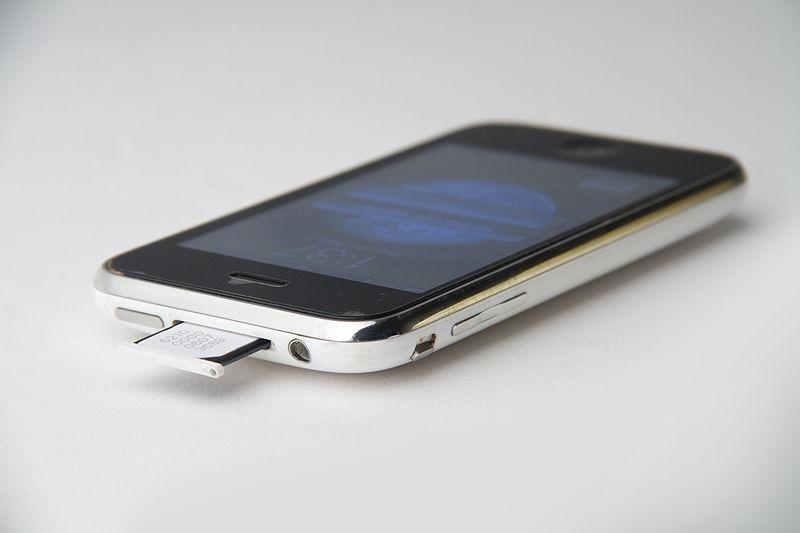Congolese Plea for Conflict-Minerals-Free iPhone
An iPhone 3G. (Photo: Feureau/Wikipedia)
A Congolese lawyer and activist is trying to get Apple to commit to making a conflict-free iPhone.
Delly Mawazo Sesete is from the Kivu region of the Democratic Republic of Congo where armed militias vying to control mines with minerals central to the making of smart phones are waging a campaign of violence against local communities.
Anchor Marco Werman talks to Sesete to get more details.
Read the Transcript
The text below is a phonetic transcript of a radio story broadcast by PRI’s THE WORLD. It has been created on deadline by a contractor for PRI. The transcript is included here to facilitate internet searches for audio content. Please report any transcribing errors to theworld@pri.org. This transcript may not be in its final form, and it may be updated. Please be aware that the authoritative record of material distributed by PRI’s THE WORLD is the program audio.
Marco Werman: On the other side of Lake Kivu is another controversy in the Democractic Republic of Congo. Many of the minerals that make our mobile phones smart are mined in Congo and that’s where the controversy begins. Armed groups fighting for control of those mines in Congo have wreaked havoc on the local populations. Among their practices, using children as slave labor and raping women to intimidate communities. Delly Mawazo Sesete is a Congolese activist, an attorney. He’s asking Apple to commit to making its iPhone with conflict-free minerals by 2013. He’s in Geneva at the moment. Why just Apple and the iPhone, Delly, why not ask all electronics manufacturers to make only conflict-free products?
Delly Mawazo Sesete: I chose Apple because it is the biggest company with good reputation, and I know if they do, once they can make change they can make a difference. That’s why I chose them. You know, I didn’t choose some companies based in China, for example, because you know, China has no traditional human rights. But in US you have a very good tradition of liberty and human rights.
Werman: Delly, I understand your from North Kivu where a lot of mining operations are happening. Is it also personal for you, this issue, in that way?
Sesete: Yeah, it’s personal because you know, I come from Kivu and many of my family’s members have been displaced because of that contest between armed groups. And I think of course, underground people have been through it, people have been killed. My own large family has been impacted by this and I think my people need more. They need peace, they need the government, they need roads, they need schools, they need hospital instead of great killings and so on. It’s not for Apple to say we’re going to stop from Congo. It’s not Congo-free exploitation, Congo-free business. We are looking for conflict-free business. That’s our concern. We need that money. We know that our economy needs money, but the problem is we need conflict-free business, that’s what we need.
Werman: Delly, I have to ask you, do you own a smartphone?
Sesete: No, no, I don’t own because I think that smartphone is part of problem and I cannot afford contributing to final thing[?2:28]. I think that buying a smartphone is like buying a bullet and I think we should try to understand how it’s better for the whole human kind to contribute to cutting the link between the armed groups and the mineral exploration in eastern Congo.
Werman: Delly Mawazo Sesete is from the Democratic Republic of Congo. He has asked Apple to commit to making a conflict-free iPhone by 2013. Delly, thank you very much for speaking with us.
Sesete: You’re welcome. Bye.
Copyright ©2009 PRI’s THE WORLD. All rights reserved. No quotes from the materials contained herein may be used in any media without attribution to PRI’s THE WORLD. This transcript may not be reproduced, in whole or in part, without prior written permission. For further information, please email The World’s Permissions Coordinator at theworld@pri.org.
Every day, reporters and producers at The World are hard at work bringing you human-centered news from across the globe. But we can’t do it without you. We need your support to ensure we can continue this work for another year.
Make a gift today, and you’ll help us unlock a matching gift of $67,000!
